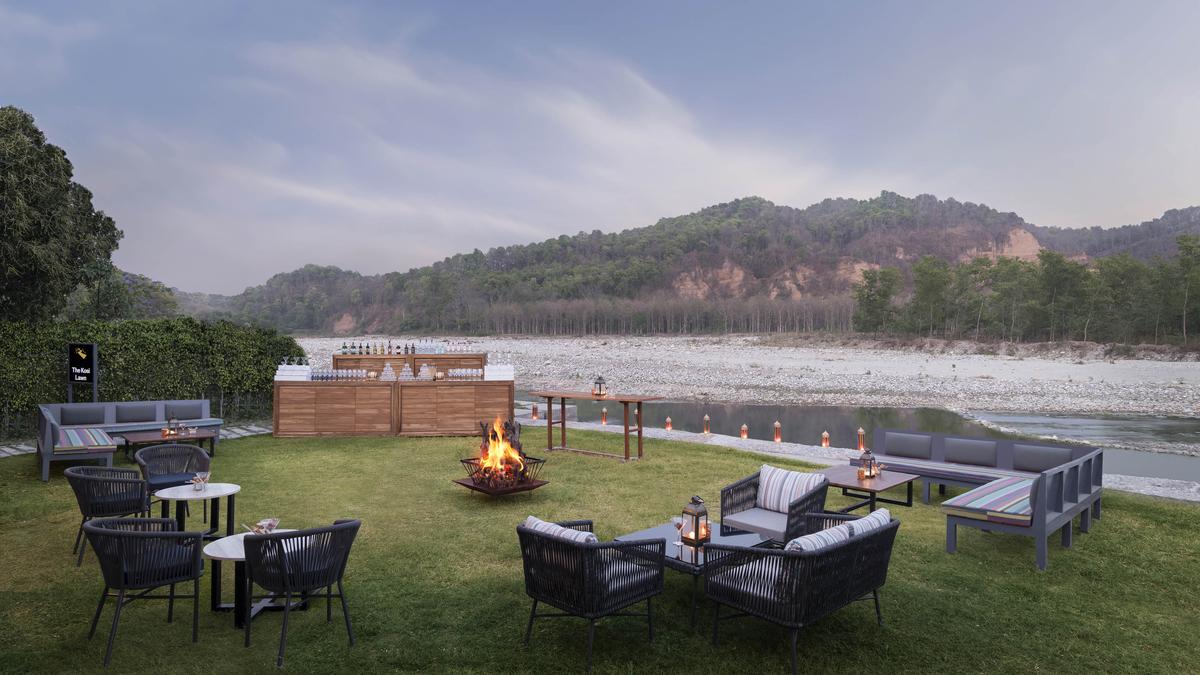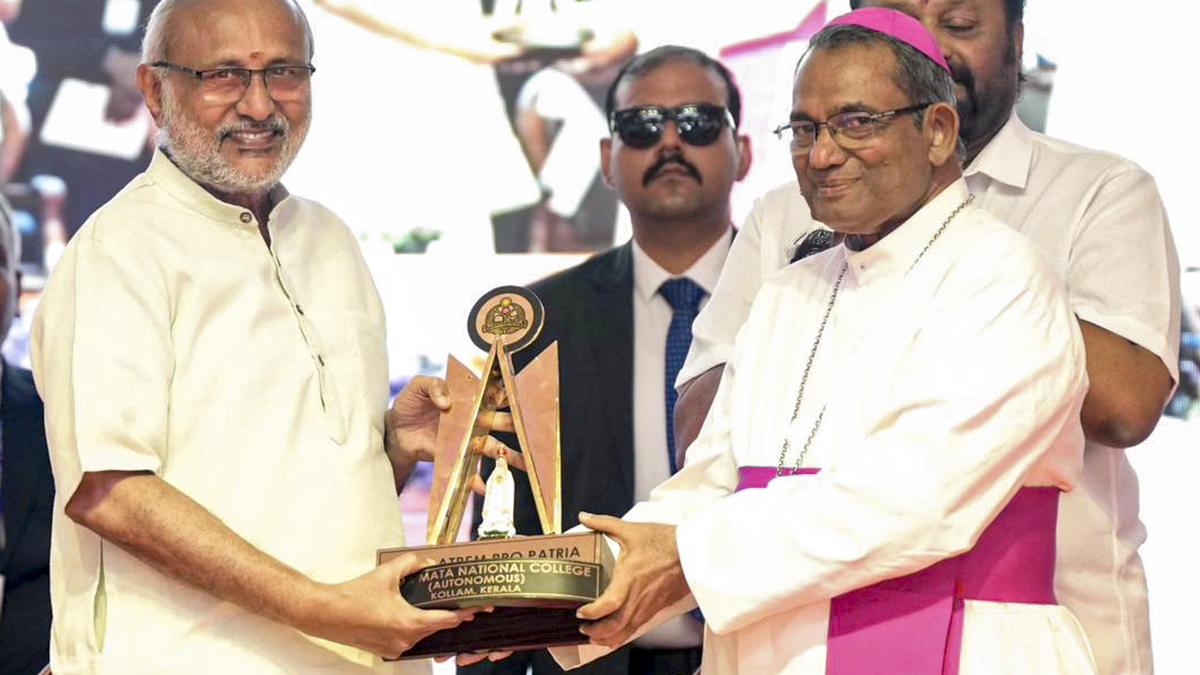Eleven women from refugee camps for Sri Lankan Tamils in Thoothukudi have started their own restaurant serving sambal and fish curry
Eleven women from refugee camps for Sri Lankan Tamils in Thoothukudi have started their own restaurant serving sambal and fish curry
Back at home in Neer Kolumbu, a seaside village in Colombo, Sri Lanka, cooking came naturally to Rohini Perara. She cooked along with her five sisters, chatting and laughing as she ground the sambal with the stone pestle, and scooped thick coconut milk into the meen kuzhambu. She could see the sea from her mother’s kitchen and knew exactly when the fishermen arrived with fresh catch. Today, she is cooking with the same spirit at Olai Puttu, a restaurant she runs along with 10 other women from refugee camps in and around Thoothukudi. “It is in our hands to make the best of this opportunity,” she says in musical Sri Lankan Tamil about the newly-opened restaurant in Thoothukudi.
Olai Puttu serves authentic Sri Lankan food, and is the brainchild of Thoothukudi MP K Kanimozhi. “It is funded by the United Nations High Commissioner for Refugees (UNHCR), and is supported by the NGO OfERR (Organization for Eelam Refugees Rehabilitation) and the Tamil Nadu Government,” says K Ratnarajasingam, the Livelihood Programme director at OfERR. “There are 59,000 Sri Lankan refugees in Tamil Nadu, spread across 102 camps,” says Ratnarajasingam. “Women there are good cooks, and they sell what they make at the camps, which are hugely popular.” The idea, according to him, is to use this skill to provide the women a livelihood and better growth prospects for them and their family.
Olai Puttu is the seed for this idea. The 11 women who work there, handle everything themselves, including cooking and waiting. This was possible with a little help. Ratnarajasingam explains, “They attended workshops at Regency Tirunelveli By GRT Hotels, and at restaurants such as Ente Keralam, The Marina, Anjappar, and Hot Breads in Chennai. M Mahadevan [of Oriental Cuisines] has even sent a chef to the restaurant to help them out in the initial days.”
The restaurant, based in Thoothukudi, specialises in traditional Sri Lankan food
| Photo Credit: RAJESH N
The women take the first bus in the morning from the Thappaathi, Mappilaiurani, and Thalamuthu Nagar camps where they live. “For now, we serve lunch and dinner,” Rohini explains. For lunch, there is rice, fish, crab, prawns, and squid curry, a vegetable and keerai kootu, sundal, and maasi sambal (a dish of coarsely ground dried tuna, coconut, and shallots). A non-vegetarian meal is priced at ₹120, while the vegetarian version costs ₹90. The women make around 25 plates of sambal a day. Idiyappam, puttu, and parotta are available for dinner, served alongside sodhi (a coconut milk-based stew), fish curry, maasi sambal and chicken curry. Dinner is priced at approximately ₹90 per person. The puttu after which the restaurant is named, is steamed in a neethu petti, an arrangement woven with palm leaves.
The venture is supported by NGOs OfERR, UNHCR and Tamil Nadu Government.
| Photo Credit: RAJESH N
Ratnarajasingam hopes that once business takes off, Olai Puttu will spread across Tamil Nadu. “Women from other camps can come to see how this restaurant functions, and they can learn to be self-sustainable. Even if they go back to Sri Lanka, they will have a skill at hand, and need not be refugees,” he says.
Dinner is priced at approximately ₹90 per person.
| Photo Credit: RAJESH N
What makes Sri Lankan cuisine different from Tamil Nadu’s, is the judicious use of coconut and coconut oil. “We add coconut milk to our fish curry instead of grinding it to a paste as is done here,” Rohini points out. She hopes to gradually introduce more dishes she grew up eating. Among her favourites, apart from fish curry, are the greens that she cooked for lunch. “We would have one variety of keerai every day, and sometimes added shredded fish such as thirukka (stingray) and sura (shark) to them,” explains the 47-year-old.
The team is headed by 45-year-old Vasanthi Kokiladasan, who came to India in 1999 from Mullaitivu. She got married in Tamil Nadu, and has three children; meals at home, hence, consist of a mix of Sri Lankan and local dishes. “I like Sri Lankan food more,” she smiles, adding, “Nothing like a good prawn kuzhambu with puttu.”
It serves dishes such an puttu, idiyappam and meen kuzhambu prepared by the women.
| Photo Credit: RAJESH N
The tastiest Tamil Nadu dish Rohini has ever had, was way back in 2006. “I arrived on a boat at 6am from Sri Lanka in August that year,” she recalls. “We had started at 9pm the previous night, and I had my nine-month-old son in my arms.” Rohini and the others were dropped off unceremoniously in the middle of the sea, where the water was neck-high. “We made our way to Thangachimadam at Rameswaram, and then reached the Mandapam camp,” she adds. “It was here that we had our first meal after two days. They served karuvattu kuzhambu and rice. I can never forget the taste of that curry.”






